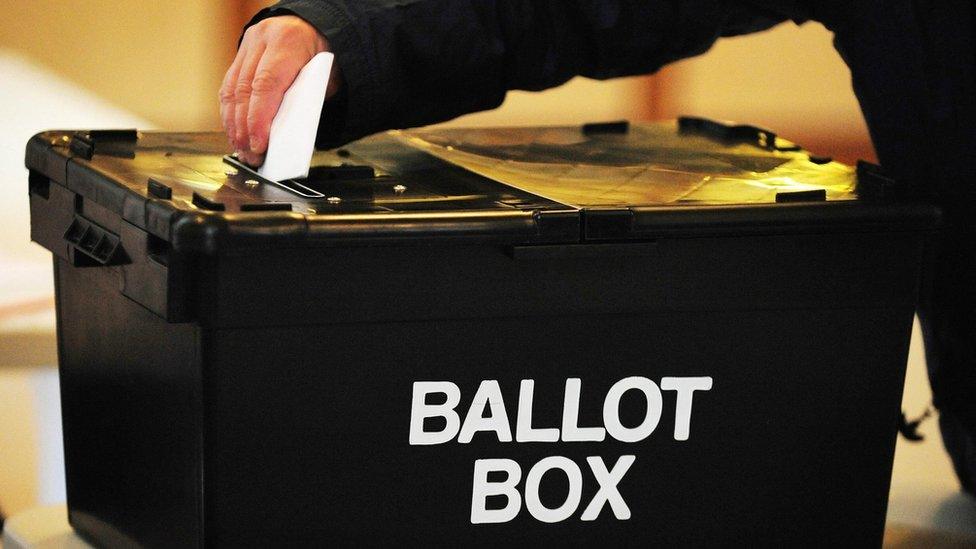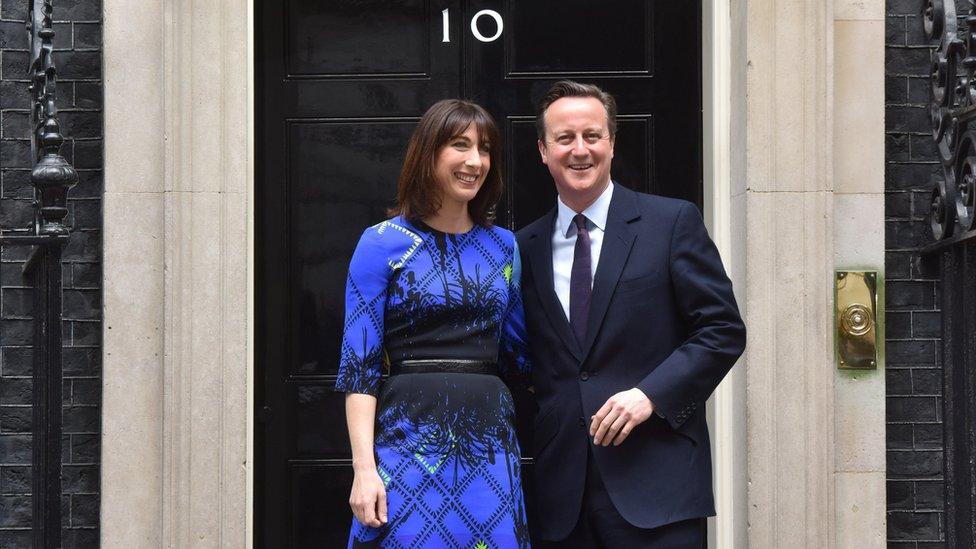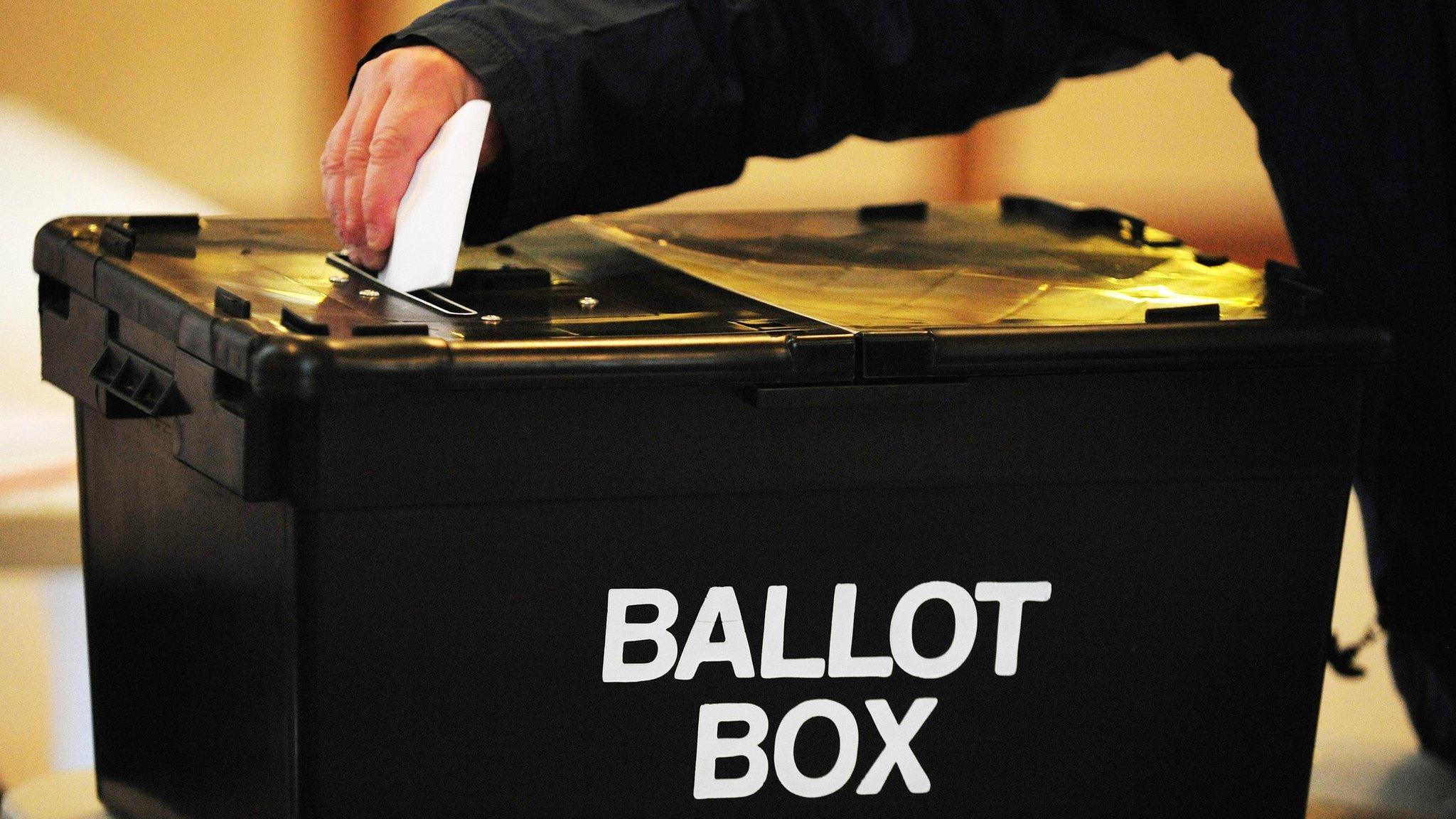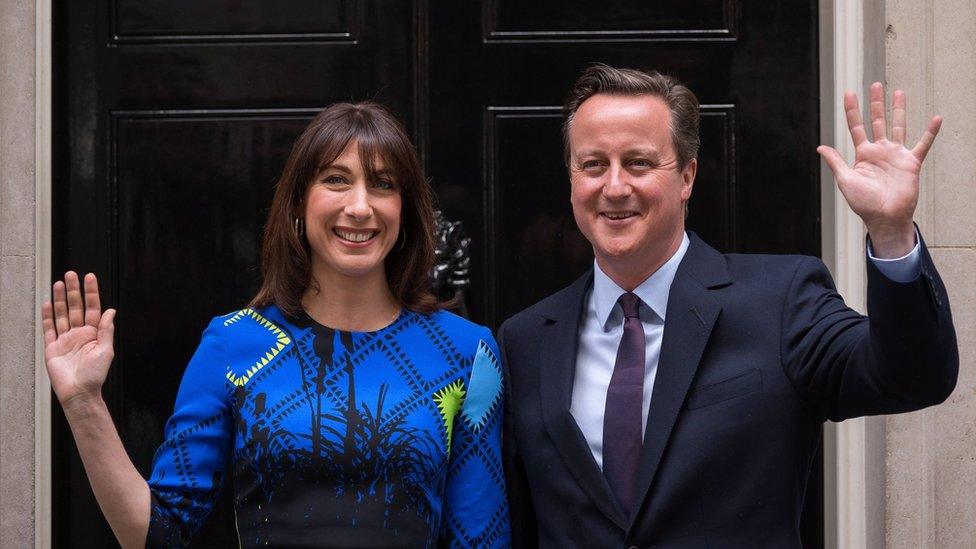General election polls in 2015 'the most inaccurate'
- Published

Opinion polls before the 2015 election were among the most inaccurate since surveying began more than 70 years ago, an industry-wide review has suggested.
Research for the British Polling Council followed the widespread failure to predict May's majority Tory win.
Surveys did not accurately sample the UK population, and over-represented Labour voters, it says.
The BPC has recommended a series of changes, saying pollsters may wish to randomly select participants in future.
It says "probability sampling" may be a more accurate way of gauging voters' intentions than the current practice of recruiting people in advance to take part on the basis of their likely voting habits.
'Surprise win'
The majority of polls taken during the five-week general election campaign indicated the Conservatives and Labour, led by David Cameron and Ed Miliband respectively, were neck-and-neck.
This led to speculation that Labour could be the largest party in a hung parliament and could potentially have to rely on SNP support to govern.
However the Conservatives secured an overall majority for the first time since 1992, winning 99 more seats than Labour, their 6.5% margin of victory taking nearly all commentators by surprise.

The Conservatives' 331 seats saw David Cameron back in Downing Street
The BPC, which represents the major survey bodies and issued an interim report into the findings in January, says the Tory win was not foreseen due to "systemic" errors.
'Not poll bashing'
The inquiry said unrepresentative sampling was the primary cause for the polling failures.
It cited the over-representation of Labour voters and under-representation of Tories, with Conservative voters apparently being harder to reach.
There was, it added, an over-reliance on more willing survey respondents and said that too few elderly people being polled could have also played a part.
It also said an inaccurate expectation of a hung parliament may have influenced the result of the election itself.
The report makes 12 recommendations to the way polls are conducted in future.
These include a call for measures to be taken to make sure samples are more representative, and a review into the way in which "don't know" voters are allocated in the results.
It says BPC members should state clearly which variables were used to weight data and detail the adjustments made in between polls.
BPC president John Curtice said the organisation will look to implement the report's recommendations on transparency but cannot compel members to comply with following a specific type of methodology.
But he said the BPC will issue a report ahead of the general election in 2020 detailing how companies have changed their sampling and weighting procedures.
"The BPC recognises that simply saying 'well okay, it's all fine, everybody go off and do their own thing' may not be thought of as an adequate response to what happened in 2015," Prof Curtice said.
Southampton University professor of research methodology Patrick Sturgis, who chaired the research for the BPC, said the report should not be used to "bash the polls".
He said "we still think that the polls are really the only show in town for forecasting election results".

- Published19 January 2016

- Published14 January 2016

- Published25 June 2015
